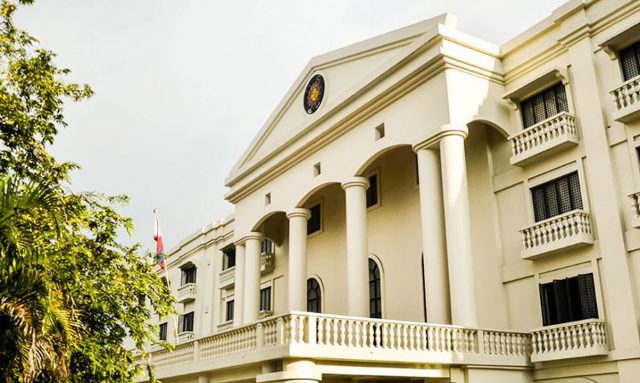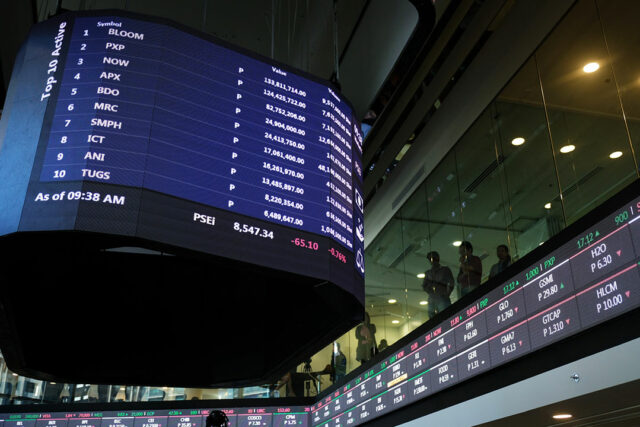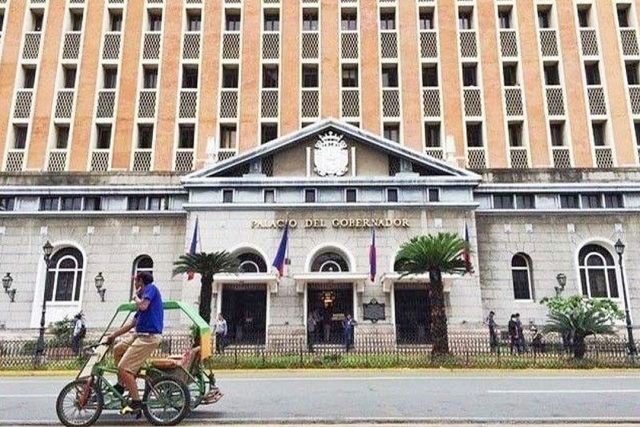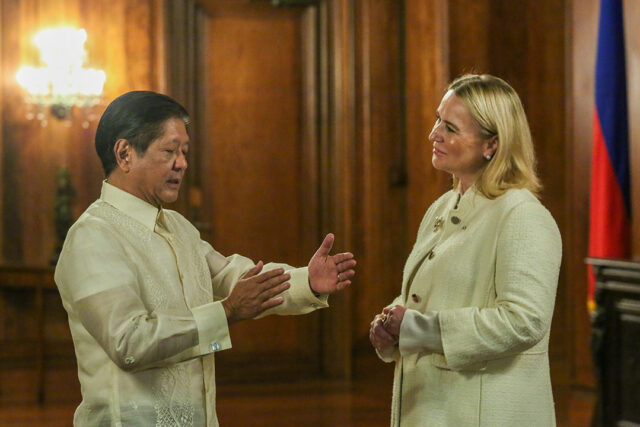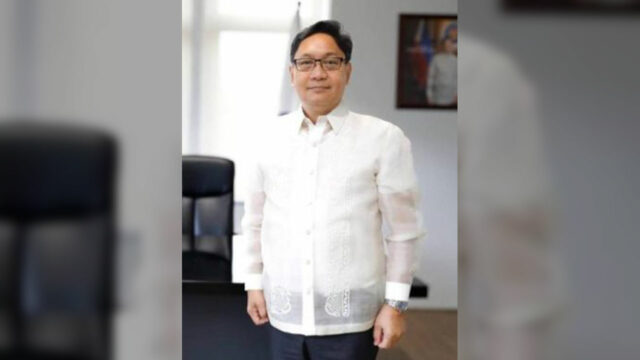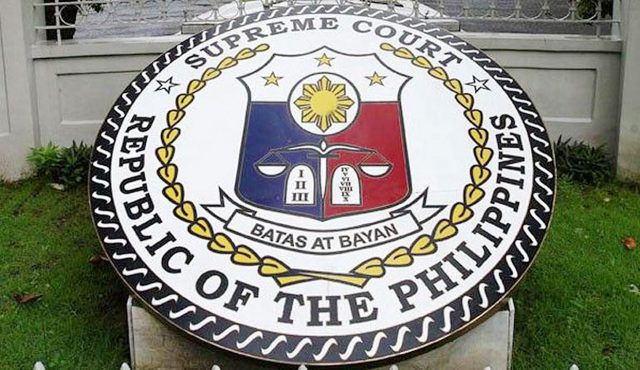By Chloe Mari A. Hufana and John Victor D. Ordoñez, Reporters
CONFLICTS in the Bangsamoro Autonomous Region in Muslim Mindanao rose 24% to 2,570 incidents in 2024 — the worst in seven years — from a year earlier, highlighting a growing pattern of instability ahead of elections, according to a civic group.
Violence in the region has been steadily rising since 2021 and is showing no sign of slowing down, the Council for Climate and Conflict Action Asia (CCAA) told a news briefing in Manila on Thursday.
“The upward trajectory is expected to continue with no significant action taken to address illicit weapons and strengthen governance,” Phoebe Dominique M. Adorable, CCAA program manager, said. “The year 2024 marks the biggest increase in violent conflict since the 2017 Marawi siege.”
 The Marawi siege was fought between government troops and the Maute-ISIS group, an alliance of militants linked to the Islamic State from May 2017 to the end of the year. It is said to be the longest urban battle in the Philippines’ modern history.
The Marawi siege was fought between government troops and the Maute-ISIS group, an alliance of militants linked to the Islamic State from May 2017 to the end of the year. It is said to be the longest urban battle in the Philippines’ modern history.
Ms. Adorable said the uptick in violence raises “serious concerns” about the 2025 midterm elections and the first-ever Bangsamoro parliamentary elections. “With elections approaching, the risk of an even greater surge in violence is high.”
The council and Early Response Network (ERN) recorded 28 active clan feuds — the biggest source of conflict — across the Bangsamoro region.
Last year, the most violent clashes happened in Maguindanao del Sur and Special Geographic Areas — 63 villages in Cotabato province. The most critical hotspots at the municipal level were in Mamasapano, Datu Hoffer Ampatuan, Buluan, Shariff Saydona Mustapha, Rajah Buayan and Sultan sa Barongis in Maguindanao del Sur.
Kadayangan and Nabalawag in the Special Geographical Areas, Datu Odin Sinsuat in Maguindanao del Norte, Cotabato City, Malabang, Butig and Marawi City in Lanao del Sur and Lantawan, Maluso and Hadji Mohammad Ajil in Basilan were also identified as critical hotspots.
Liezl P. Bugtay, senior program manager for conflict monitoring at the council, said a major concern now is the postponement of the parliamentary elections because it would prolong and potentially worsen the conflicts especially in election hotspots in Cotabato City, Datu Odin Sinsuat and Marawi City.
“When you postpone the election, you prolong the time for warring groups to square off with each other,” Francisco J. Lara, Jr., council executive director, told the same briefing.
Last month, President Ferdinand R. Marcos, Jr., certified as urgent a bill postponing the Bangsamoro election. The Senate and House of Representatives have approved separate bills that seek to reschedule the elections to October from May.
Calls for the postponement of the first parliamentary elections in one of the Philippines’ poorest regions were made after the Supreme Court last year excluded Sulu from the autonomous region. The elections were originally set for May 2022 but was postponed amid a coronavirus pandemic and failure to come up with an electoral code.
CCAA cited the need for conflict resolution, security sector reforms and state intervention to attain lasting peace in Mindanao.
Mr. Lara sought an independent, autonomous and redundant election monitoring system before, during and after the elections.
“Historically, violence and displacement often escalate in the post-election period,” he said. “Monitoring is not just about ensuring the credibility of the electoral process; it is also crucial in securing public trust in the results.”
The group urged the Commission on Elections (Comelec) to take proactive measures to prevent violent incidents from recurring in former hotspots including Cotabato City, Datu Odin Sinsuat, Mamasapano, Marawi City and Malabang.
Mr. Lara, a retired sociology professor from the University of the Philippines Diliman, said the police and military must enforce the gun ban with full impartiality, noting that it should not only apply to local politicians but also armed groups.
“No groups should have the power to obstruct security forces in implementing the law,” he said. “The government must ensure that any violations, whether by political figures or armed factions, are met with immediate accountability, including arrests and disarming if necessary.”
Mr. Lara also said the National Government should facilitate mediation and settlement at the earliest opportunity to prevent the escalation of clan feuds. These clan wars would probably be worsened by political rivalries, he pointed out.
If negotiations start now, alliances and agreements may be reached before the local elections and the upcoming parliamentary elections.
“Local mechanisms such as the Early Response Network should be strengthened to facilitate coordination, mediation and rapid response,” he said, adding that empowering community-based networks to monitor tensions, engaging key actors and supporting the local peace process are crucial in preventing conflicts from escalating.
Mr. Lara also said the Comelec should address the growing public distrust in its impartiality. He noted that in past elections, critics had raised doubts about the credibility of the electoral process.
“Comelec must take concrete steps to uphold its neutrality, including preventing last-minute reshuffling of municipal election officers and strictly enforcing its own rules and regulations,” he said.
To combat the resurgence of violence, the government should stay vigilant and ensure that declaring areas as violence-free does not lead to complacency, he added.
Mr. Lara also sought a strict audit of election spending to ensure that campaigns are not financed by illegal activities.
“The root causes of extremism, such as discrimination, unfulfilled reintegration promises and the lack of opportunities for young people must be addressed,” he said. “The lessons of restorative justice must guide efforts to reduce the appeal of extremist recruitment.”
‘CRITICAL JUNCTURE’
Also on Thursday, Mr. Marcos ordered the military to ensure the midterm elections on May 12 are peaceful and safe amid high-stakes political pressure.
“Once again, we find ourselves at a critical juncture where we have to preserve not only the integrity of our election, but the very ethos of our democracy,” he said at the oath-taking ceremony of newly promoted military generals and flag officers at the presidential palace, based on a transcript sent by his office.
“As a nation that deeply values and honors our right to vote, we are counting on the armed forces to ensure a peaceful, credible and orderly conduct of the electoral process that Filipinos expect from us. We cannot fail them,” he added.
Filipinos will pick 12 of the 24-member Senate, a new set of congressmen and other local officials on May 12.
The Armed Forces of the Philippines on Feb. 11 deployed at least 18,000 troops to oversee security on the first day of the national campaign period. Local bets will start their campaigns on March 28.
The political pressure ahead of elections is heightened by a high-profile row among warring elites that culminated in the impeachment of Vice-President Sara Duterte-Carpio.
Senatorial candidates endorsed by the President continue to dominate polls, according to Pulse Asia Research, Inc. and Social Weather Stations.
“Be assured that this administration stands with you side by side in upholding peace, democracy and the rule of law,” Mr. Marcos said.

